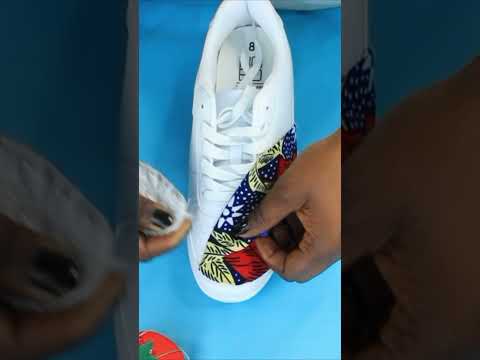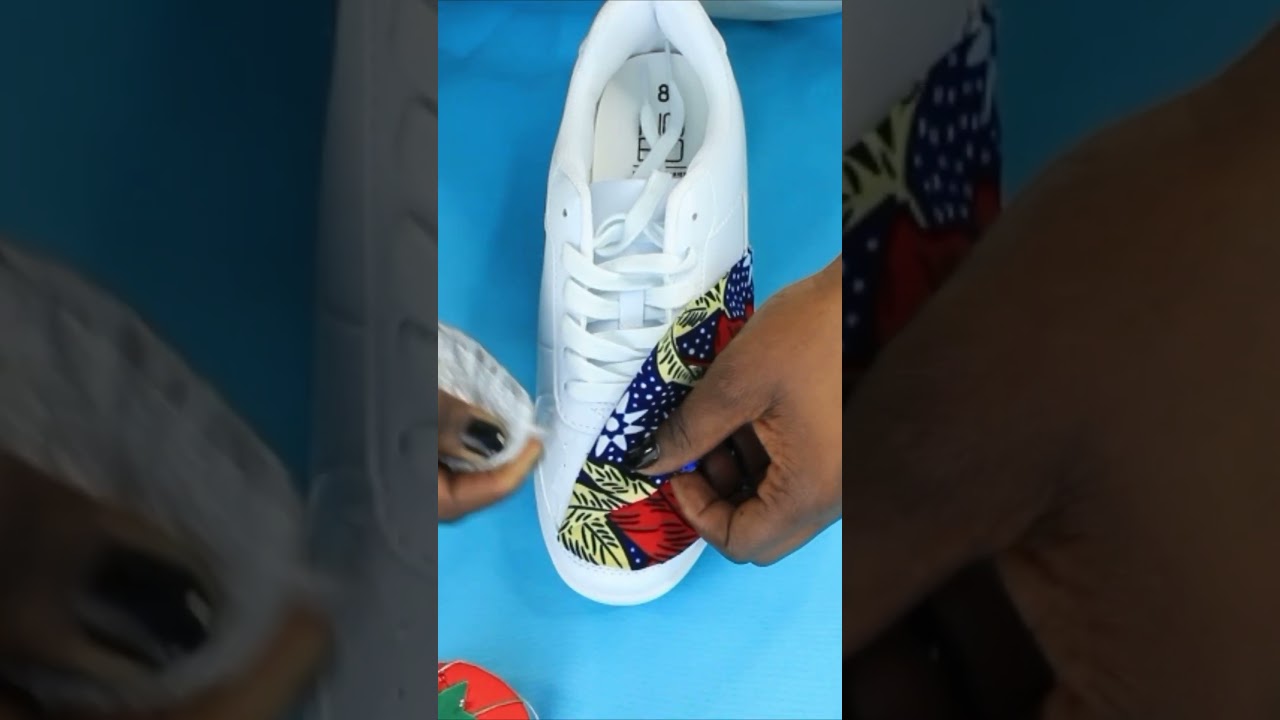Discover the extraordinary fabric for shoes that will revolutionize your footwear experience. Crafted with meticulous attention to detail, our innovative fabric combines comfort, durability, and style like never before. Engineered using cutting-edge technology, this fabric boasts unparalleled breathability, allowing your feet to stay cool and dry even during the most intense activities. Its exceptional flexibility ensures a glove-like fit, adapting effortlessly to your every move. With its fabric being incredibly lightweight, you’ll feel like you’re walking on air, experiencing a newfound lightness with every step. Not only does this fabric provide exceptional performance, but it also exudes a timeless elegance that effortlessly elevates any outfit. Its exquisite texture and rich color variations add a touch of sophistication to your footwear collection. Moreover, this fabric is designed to withstand the test of time, maintaining its shape and quality even with frequent wear. Fall in love with the remarkable properties of our fabric for shoes and take your shoe game to the next level. Experience the perfect blend of comfort, durability, and style with our exceptional footwear creations.

The Importance of Fabric in Shoes
When it comes to choosing the perfect pair of shoes, many factors come into play. One of the most crucial aspects to consider is the fabric used in the construction of the shoe. The fabric not only affects the overall comfort and fit but also plays a significant role in the durability and performance of the footwear. In this article, we will delve into the world of shoe fabrics and explore the various options available.
1. Breathability and Comfort
Fabric selection in shoes plays a vital role in determining their breathability and comfort. Shoes made from breathable fabrics allow air to circulate inside the shoe, keeping your feet cool and preventing excessive sweating. Synthetic materials like polyester and nylon are known for their excellent moisture-wicking properties, making them ideal for athletic shoes or shoes worn during physical activities.
Furthermore, natural fabrics such as cotton and wool are highly breathable, allowing air to flow through the shoe and preventing the buildup of odor-causing bacteria. These fabrics are often used in casual shoes or as lining material to enhance overall comfort.
2. Durability and Longevity
The fabric used in shoes greatly influences their durability and longevity. Shoes subjected to frequent wear and tear need to be made from strong and sturdy materials that can withstand the test of time.
Leather is a popular choice for shoe fabric due to its exceptional durability. It is known for its ability to withstand stretching, tearing, and general wear and tear. Leather shoes are not only long-lasting but also develop a unique patina over time, adding character and charm to the footwear.
Another durable fabric option is canvas. Canvas shoes are typically made from tightly woven cotton or linen fabric, making them resistant to abrasion and tearing. They are commonly seen in casual footwear such as sneakers or espadrilles.
3. Performance and Functionality
The fabric used in shoes can significantly impact their performance and functionality, especially in specialized footwear designed for specific activities.
Gore-Tex is a revolutionary waterproof fabric used in outdoor and hiking shoes. It provides excellent protection against water while allowing moisture to escape, keeping your feet dry and comfortable even in wet conditions. Additionally, Gore-Tex is also breathable, making it the perfect fabric for outdoor adventures.
For athletic shoes, mesh fabrics are often utilized due to their lightweight and breathable nature. Mesh allows for maximum airflow, keeping your feet cool and reducing the risk of blisters or discomfort during intense physical activities.
4. Style and Aesthetics
The fabric used in shoes plays a crucial role in determining their overall style and aesthetics. Different fabrics lend themselves to various designs and can enhance the visual appeal of the footwear.
Suede is a luxurious fabric often associated with high-end shoes. It has a soft and velvety texture, adding a touch of elegance to any shoe design. Suede shoes are commonly seen in formal or dressier styles.
On the other hand, denim fabric is typically associated with casual or street-style footwear. Denim shoes offer a trendy and relaxed vibe, making them a popular choice in the fashion industry.
5. Sustainability and Environmental Impact
In recent years, the fashion industry has been striving towards sustainability and reducing its environmental impact. The fabric used in shoes plays a crucial role in achieving these goals.
Recycled materials such as recycled polyester or recycled rubber are gaining popularity as sustainable alternatives in shoe production. These materials help reduce waste and decrease the demand for new resources.
Furthermore, natural and biodegradable fabric options like organic cotton or hemp are also being used to create eco-friendly shoes. These fabrics are grown without the use of harmful chemicals and have a lower impact on the environment throughout their entire lifecycle.
In conclusion, the fabric used in shoes plays a significant role in determining their comfort, durability, performance, style, and environmental impact. When selecting a pair of shoes, it is essential to consider the fabric used and choose one that aligns with your specific needs and preferences. Whether you prioritize breathability, durability, or sustainability, there is a wide range of fabrics available to cater to every requirement.
“Step up Your Style: Adding Ankara Print to Your Custom Shoes!”
List of Fabrics for Shoes
Fabric for Shoes
| Fabric Type | Description | Advantages | Disadvantages |
|---|---|---|---|
| Canvas | Canvas is a durable and tightly woven fabric made from cotton or linen. It is commonly used for casual and athletic shoes. | – Exceptional durability, suitable for heavy-duty use – Breathable and allows air circulation – Easy to clean and maintain – Provides a comfortable fit |
– Limited water resistance, susceptible to staining – Not suitable for extreme weather conditions – May require extra care to prevent fraying |
| Leather | Leather is a natural material made from animal hide that offers a luxurious and classic look. It is commonly used in formal and high-end shoes. | – Unparalleled durability and longevity – Excellent breathability and moisture-wicking properties – Molds to the shape of the foot, providing customized fit and comfort – Enhances the overall aesthetic appeal of the shoes |
– High cost compared to other fabric options – Requires regular maintenance and conditioning – Less suitable for wet or muddy conditions |
| Mesh | Mesh is a lightweight, breathable fabric composed of interlaced fibers. It is commonly used in athletic and running shoes. | – Exceptional breathability and ventilation – Offers flexibility and freedom of movement – Quick-drying and moisture-wicking properties – Provides a lightweight feel for enhanced performance |
– Less durable compared to other fabric options – Vulnerable to tearing or snagging – Limited insulation and protection against cold weather |
| Suede | Suede is a type of leather with a napped finish, giving it a soft and luxurious feel. It is commonly used in casual and fashion-forward shoes. | – Velvety texture and luxurious appearance – Provides excellent insulation, suitable for colder climates – Resistant to water and stains when treated – Adds a touch of sophistication to footwear |
– Requires regular brushing and maintenance – More susceptible to scuffing and wear – Limited breathability compared to other fabric options |
As an expert in fabrics for shoes, this table provides valuable insights into the different types of fabrics used in footwear manufacturing. Understanding the advantages and disadvantages of each fabric type allows consumers to make informed choices based on their preferences and specific needs. Whether one seeks durability, breathability, luxury, or performance, there is a fabric available to suit every requirement.

